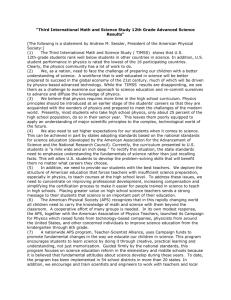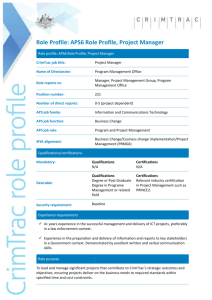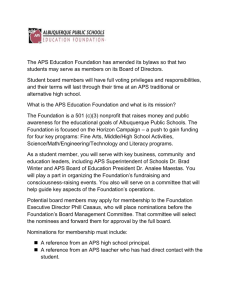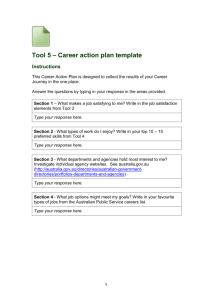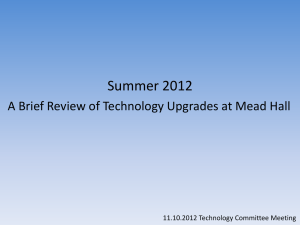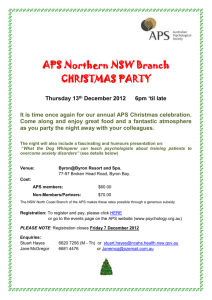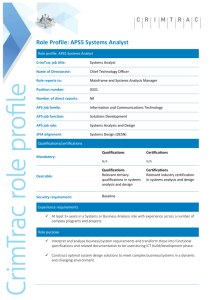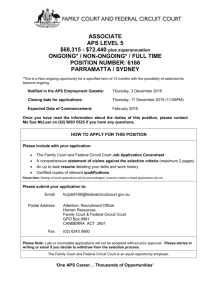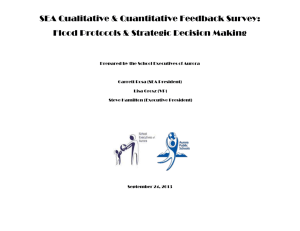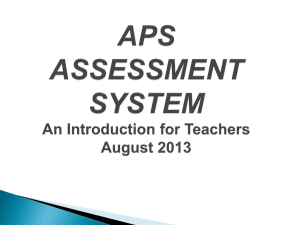Cell and Wifi Service - Information Systems & Technology
advertisement
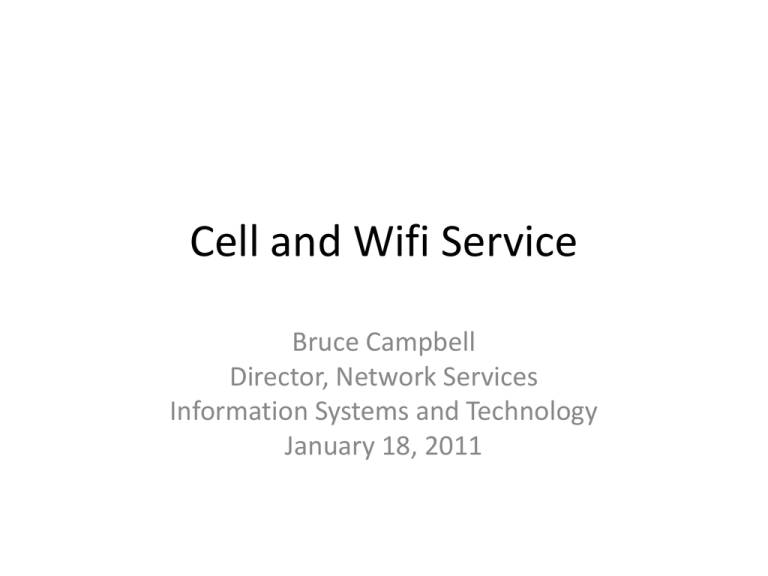
Cell and Wifi Service Bruce Campbell Director, Network Services Information Systems and Technology January 18, 2011 Cell Service • Generally, responsibility left to providers (e.g. Bell, Rogers). Minimal involvement from UW so far. • Boosters installed in a few locations (MC first floor, RCH 101) • RFP for pilot project “Distributed Antenna System” for MKV residence issued. See October 20, 2010 Daily Bulletin Wifi • Wifi offered in all UW buildings, except some College residences. • Aruba Networks system. • Approximately 1,000 Access Points (APs) in main campus buildings, and 600 APs in Housing residences. • New buildings (e.g. E5) are a/b/g/n • Residences are a/b/g • Most campus buildings are b/g Coverage Planning • By square foot, for low density areas (offices) – e.g. 1 AP per 6,000 square foot is about minimum • By user, for high density areas (common areas) – e.g. 1 AP per 10-20 people provides basic service. • Most areas of campus were done based on square foot, before wifi was popular (years ago). (6000 square feet per AP) • Residence deployment based on people, approx 1 AP per 10 residents. Some Coverage Problem Areas • Libraries, during exams • Large lecture rooms • Math lounge Expansion • Approximately 400 APs have been added on main campus in past two years. (includes new buildings) • Upgrading DC, LIB and SLC to a/b/g/n (from b/g) (100 APs, on order) • 4 new a/b/g/n APs for Math C&D and lounge • 2 new a/b/g/n APs for MC 1085 (class room) Lecture Rooms • Most lecture rooms will not support all seats active on wifi. • Design challenge: – – – – – 1 AP per 20 people Example lecture room 40’x60’ = 2400 square feet, 160 seats. 8 APs in 2400 square feet = 300 square feet per AP Far less than general minimum of 2000 square feet per b/g AP. Requires many channels or very low power settings, and APs close to users (under desks) • In PHR 1004 (160 seats) we installed 6 b/g APs, and it is adequate for light use by fewer than full 160 people. • Cost of conduit, APs, cabling, for large lecture rooms is about $50/seat ($1000 for conduit, cabling, plus AP, serves 20 people). E.g. 700 seats = $35,000 Response • Still trying to catch up with demand. • Still somewhat reactive. We address issues after the fact. • Some proactive monitoring with tools. Identifies high density areas. • IST Client Services co-op student visits areas of campus and reports real world experience. • Planning to deploy an online forum to allow users to share experience, knowledge about specific devices. Allows IST to pick up on sources of frustration, problem areas. eduroam • Useable at participating institutions • Data is encrypted • uw-wireless subject to session hijacking for non https sites (e.g. facebook) • eduroam easier to use for modern operating systems. • Old operating systems and some devices have troubles.
